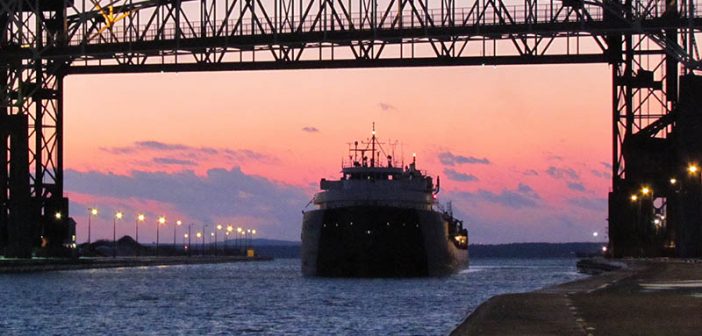The Coast Guard has set Great Lakes pilots’ rates 11% higher than last year due to inflation, the addition of two working pilots and updated historic traffic data.
Under the final rule effective June 10, per pilot hourly pay will range from $306 to $733 — depending on the district — up from $271 to $653 last year. Total target pilot compensation rises to $359,887 from $352,485.
The rule affects 51 U.S. pilots, three associations as well as the owners and operators of about 256 vessels whose payments will increase $2.8 million over the $25.1 million in 2018. The move extends a years-long battle between the Coast Guard and ports and shippers.
“The Coast Guard believes that the new rates will promote pilot retention, ensure safe, efficient, and reliable pilotage services on the Great Lakes, and provide adequate funds to upgrade and maintain infrastructure,” the agency said in the rule published May 10.
The American Great Lakes Ports Association noted this is the fifth consecutive year of unprecedented, double-digit increases for the nine-month shipping season. Saying it supports a safe and reliable pilot system, the group and industry partners believe the increases “will negatively impact the competitiveness of the navigation system. As all actors in the supply chain work to control cost and remain competitive, pilotage remains a run-away cost-controlled by federal bureaucrats insensitive to commercial concerns.”
The Coast Guard establishes rates for Great Lakes pilots while pilot rates elsewhere in the country are set at the local level.
The number of lakes pilots has grown from 37 in 2016 to 51 authorized this year. The Coast Guard has said its goal is 54 “to help reduce fatigue and ensure safety on the waterways.”
In the past three years, the agency has changed the way it calculates rates, now using hourly billing and the application of a weighting factor — so larger ships yield higher pilotage revenues than smaller ones. The current formula is designed to “produce an hourly rate that adequately and accurately compensates pilots and covers expenses,” the Coast Guard said.
While raising concerns about some numbers in commenting on the proposed rule, the Western Great Lakes Pilots Association commended the Coast Guard “for taking seriously its role as regulator of Great Lakes pilotage over the past four years (in contrast with previous decades.) Great progress has been made.”
Arguing that market forces should be considered, the ports association, the U.S. Great Lakes Shipping Association and the Shipping Federation of Canada said the “rates are solely the product of a government-imposed monopoly structure for providing US pilotage in the St. Lawrence Seaway….Cargo interests who believe the costs of direct vessel shipments to ports on the Great Lakes are too high can choose other routings that by-pass the Lakes altogether, but a shipowner/ratepayer directed to call in the Great Lakes has no option to select a more cost-effective pilotage system.”




